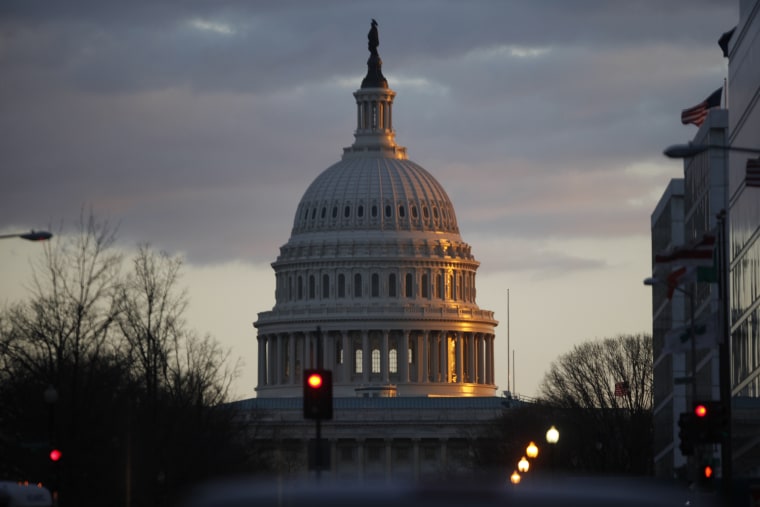Current funding for the federal government expires two weeks from tomorrow. Between now and then, Congress is only scheduled to be in session, doing actual work, for about a week, which only raises the odds of a shutdown at the end of the month.
For those hoping to see the issue resolved before the deadline, the good news is that GOP leaders have settled on a plan that involves a series of anti-abortion show votes, which wouldn't actually affect public policy in any way, but which are intended to pacify and placate far-right members itching for a fight over Planned Parenthood funding. The bad news is that conservatives, not surprisingly, aren't fond of the approach endorsed by the Republican leadership.
But if GOP leaders hope to persuade their rank-and-file members that a shutdown fight is a political loser for the Republican Party, there's ample evidence to bolster the argument.
A huge majority wants Congress to keep the government open, regardless of whether that means providing funding to Planned Parenthood, according to a CNN/ORC poll released Monday. The poll finds that 71 percent of adults say it is more important for Congress to approve a spending bill to keep the government open, compared to 22 percent who say it is more important to eliminate all federal funds for Planned Parenthood.
When congressional Republicans shut down the government two years ago, they genuinely seemed to believe that if far-right lawmakers went on TV and told the public how righteous their agenda was, the public would rally behind the entire shutdown strategy.
It didn't work, but we're nevertheless looking at an eerily similar dynamic. In fact, GOP lawmakers are arguably in a weaker position now -- in part because Republicans are more divided among themselves than they were in 2013, and in part because they're basing the shutdown plan on opposition to Planned Parenthood, which is actually quite popular with the American mainstream.
A month ago, an NBC News poll found that Planned Parenthood "had the highest favorability rating of any institution or politician in the poll." Two weeks ago, a Fox News poll found that a majority of Americans support federal funding for the health care organization, and most of the public has a favorable opinion of the group.
A recent Quinnipiac poll in Florida, Ohio, and Pennsylvania -- three of the nation's largest swing states -- added, "Voters in each state oppose efforts to cut off federal funding for Planned Parenthood."
If congressional Republicans expect the American mainstream to support the party's shutdown strategy, they're likely to be disappointed.
Disclosure: My wife works at Planned Parenthood, but she played no role in this piece.
